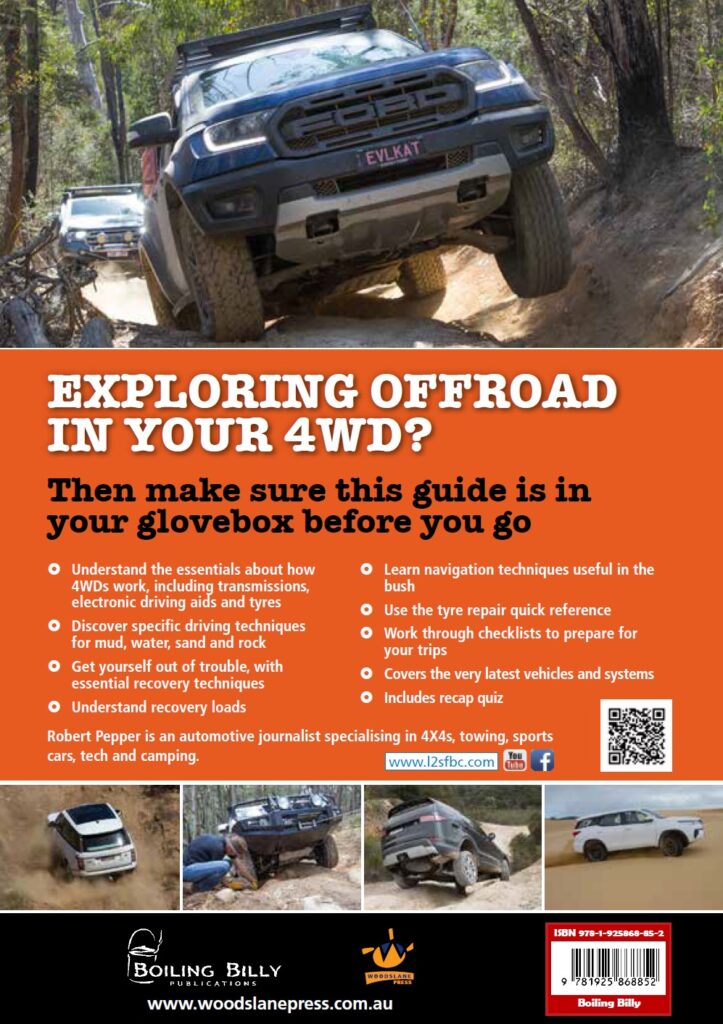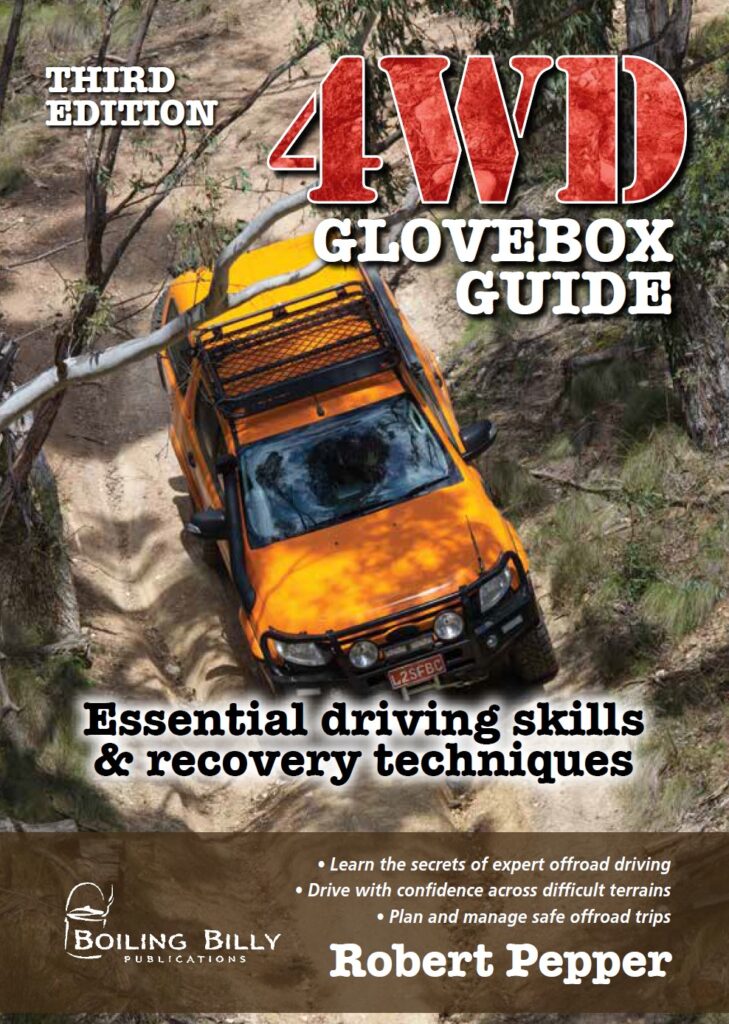
The 4WD Glovebox Guide is a field reference for 4WD owners and drivers.
The Glovebox Guide covers all the most frequently used offroad driving techniques. It is written as a reference for to be used in the field, complementing the 4WD Handbook which has more detailed explanations.
Several driver training organisations use The 4WD Glovebox Guide as a reference and student handout, a purpose for which it has been specifically designed. Some clubs have designed courses around its content.
“In relation to feedback about the Glovebox Guide [suggestion for improvement]. I have none. It is brilliant. And that is also the feedback that I get from anyone that I give a copy to.” – Kris Bullen, 4WD trainer
Glovebox Guide Information
- Glovebox Guide Quiz Answers
- Difference between the Guide and the Book
- Updates and Errata
- Versions of the Glovebox Guide
For 2022 the Glovebox Guide was updated to a third edition with a new chapter on recovery loads, revision of the snatch straps and winching sections to cover new equipment like snatch rings, and each chapter refreshed with new images and current techniques.
Table of Contents
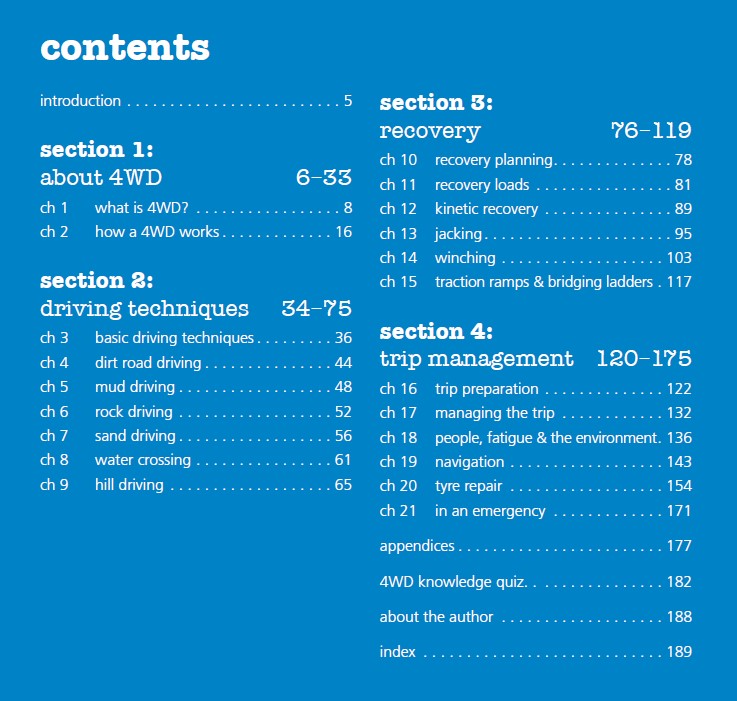
Sample pages
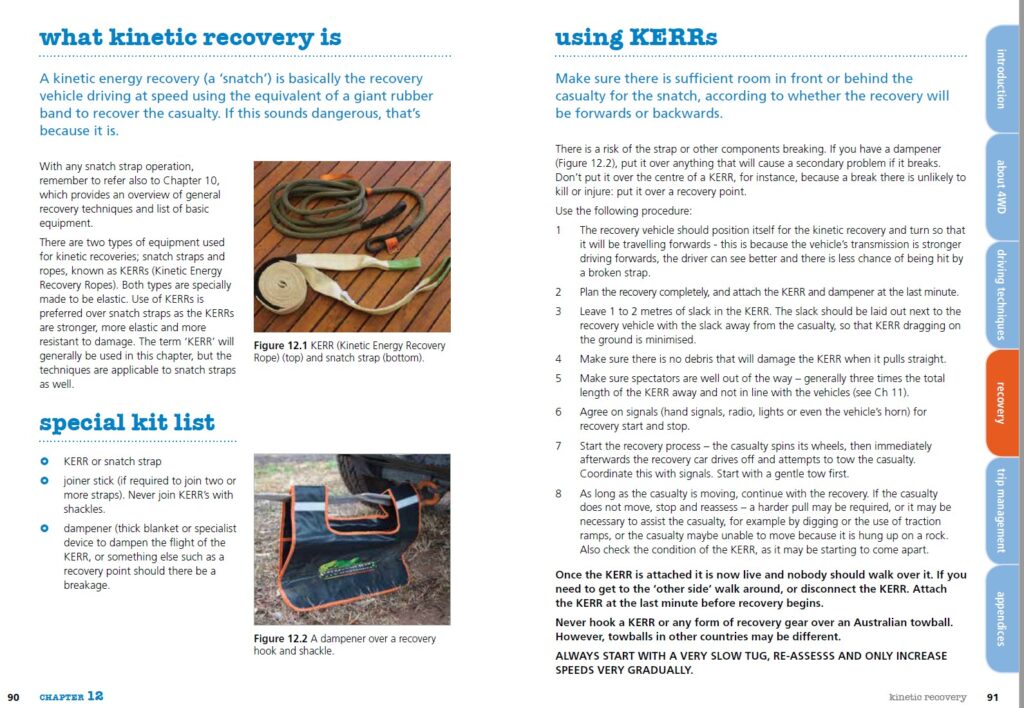
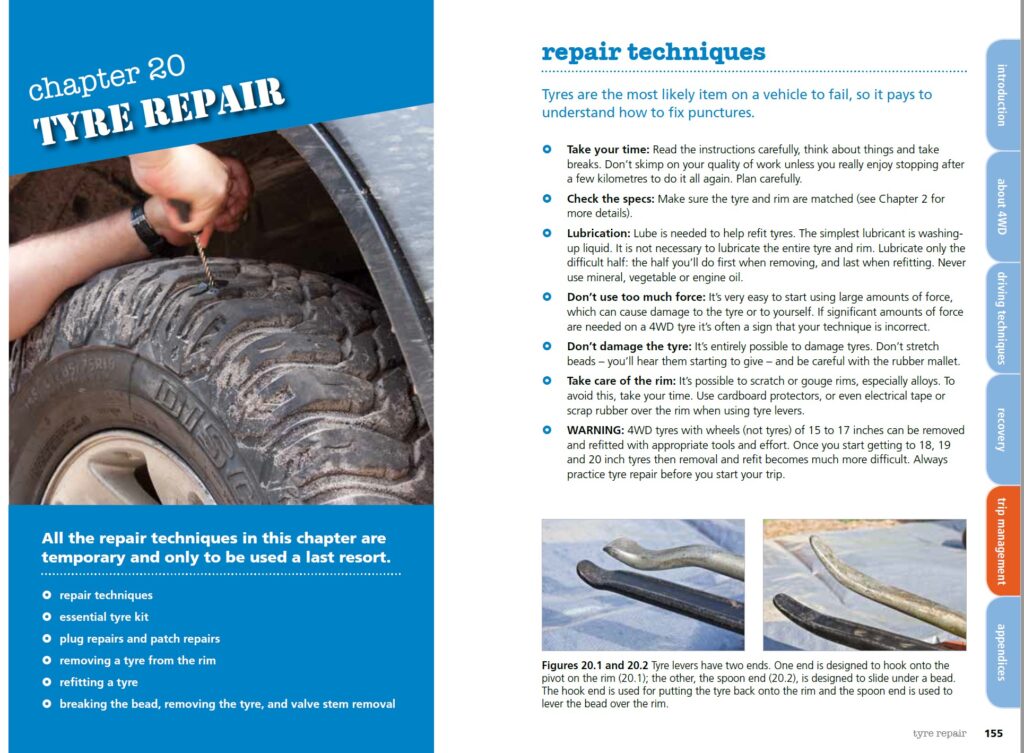
National competency mapping
The 4WD Glovebox Guide is designed to cover the key components – and much more beyond – of Australia’s National Competencies for offroad driving which are listed below:
| Code | Title |
| SISODRV302A | Drive and recover a 4WD vehicle |
| FPICOT3259 | Operate a four wheel drive on unsealed roads |
| RIIVEH305A | Operate and maintain a 4X4 vehicle (resources) |
| FPICOT2234B | Operate a 4X4 vehicle (forestry) |
| TLIC2025 | Operate a 4X4 vehicle (transport) |
| PMASUP236B | Operate vehicles in the field (chemicals) |
| SISODRV404A | Drive a 4WD vehicle in difficult terrain |
| SISODRV405A | Coordinate recovery of 4WD vehicles |
| SISODRV201A | Drive AWD/4WD vehicles on unsealed roads |
| SITTTOP003B | Operate and maintain a 4WD tour vehicle |
Note: Merely reading this book alone does not qualify you for a competency, and the quiz is a check of understanding not a qualification.
You must still take an approved training course and be assessed as competent by a qualifier assessor. This book can help by providing a checklist of elements you must understand or know before your assessment. Competencies change, so you must check that your study covers all the required topics.
If you do not require a Competency for your work, then my advise is not to bother as a good recreational 4X4 course will have a better breadth and depth of content. The Competencies need some work to be relevant and useful.
